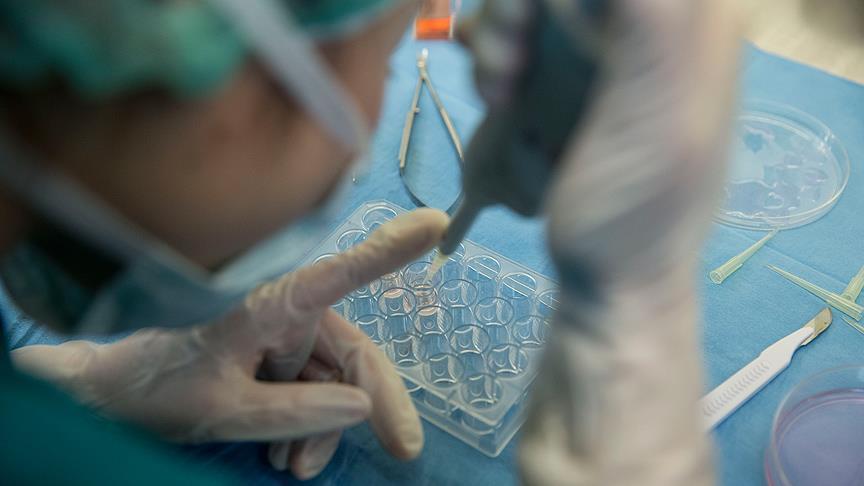Turkish scientist makes discoveries on cancer treatment
Discoveries boost hope for treatment of pancreatic, ovarian cancers

By Zuhal Uzundere Kocalar
GAZIANTEP, TURKEY
Turkish scientist Prof. Dr. Ali Mazhar Adli, who conducts studies at the University of Virginia in the U.S., has made two significant discoveries on the treatments of pancreatic and ovarian cancers.
Speaking to Anadolu Agency in Turkey's southern Gaziantep province, where he is going to participate in a scientific meeting organized by SANKO University, Adli said he had been focusing on how cancer can be destroyed and how alternate drugs against the disease can be developed.
The Turkish scientist had graduated from Middle East Technical University. After having his PhD from Harvard University, he moved to University of Virginia where he has been experimenting in his own lab for the past six years.
Noting that he used CRISPR technology, which offers the opportunity to change the genetic information of the living cell, Adil said he is also developing new technologies in this field.
"With the help of CRISPR technology, we are able to go to the cell nucleus and change the genetic information in the cell. Let's take a genetic information as a library. Through this technology, we can go to a random book in the library and sensitively change the 5th word in the 3rd page of it.
"Our goal is to understand how genetic information operates in a normal cell and how this information causes cancerous cell. Should we fully comprehend this, we will be able to prevent various genetic diseases including cancer," he said.
Adli pointed out that he had a particular focus on the pancreatic and ovarian cancers, and he was studying to develop treatments for these cancer types.
"Pancreatic cancer is the deadliest type, 80% of those suffer with this cancer die within a year; there is no medication to it, unfortunately. The drugs are same ones that have been out for the past 40 years. Sadly, there are no alternative drugs or drug combinations yet.
"One of the goals I set while establishing my lab was pancreatic cancer. We have to implement our findings into the clinic.
"In one of our articles published in Nature a week ago, by using CRISPR technology, we scanned the whole of four thousand genes on a living model organism, then studied which of them prevented cancer and increased the efficiency of the medication.
"Thus, we demonstrated one of our discoveries. If we combine our medication with the already used one, we are able to kill cancerous cells a hundred times more. This finding means that we could have the same impact with 100 percent less chemotherapy dose given to the patient."
New finding on ovarian cancer
Adli said that there was also a new finding on ovarian cancer, noting that the fresh medication would eradicate cancer after the tumor was taken away and treatment was completed.
"However, the tumor comes back after a few months and the same drug used in treatment doesn't work anymore. The tumor gains resistance quite swiftly. We are studying to understand this mechanism first so that we could overcome this issue," he said.
He went on to say that they would soon publish an article regarding the findings on this topic.
"One of the basic mechanisms we have found is that while the cancerous cell becomes more resistant against the medication, it doesn't change its genetic information, instead, it changes its epigenetic information which shows how the genetic information operates.
“Epigenetic information is a changeable one, not fixed like genetic information. Therefore, we are able to alter the epigenetic information a lot more easily through small molecule drugs.
“However, first, we need to identify the 20 thousand genes where this information is changed. In our upcoming article, we have unveiled the epigenetic information map of the normal and drug-resistant cancerous cells. Now, we learned about which genes are controlled. Moreover, we demonstrated that we prevented this mechanism through epigenetic drugs."
*Ali Murat Alhas contributed to this story from Ankara
Anadolu Agency website contains only a portion of the news stories offered to subscribers in the AA News Broadcasting System (HAS), and in summarized form. Please contact us for subscription options.

